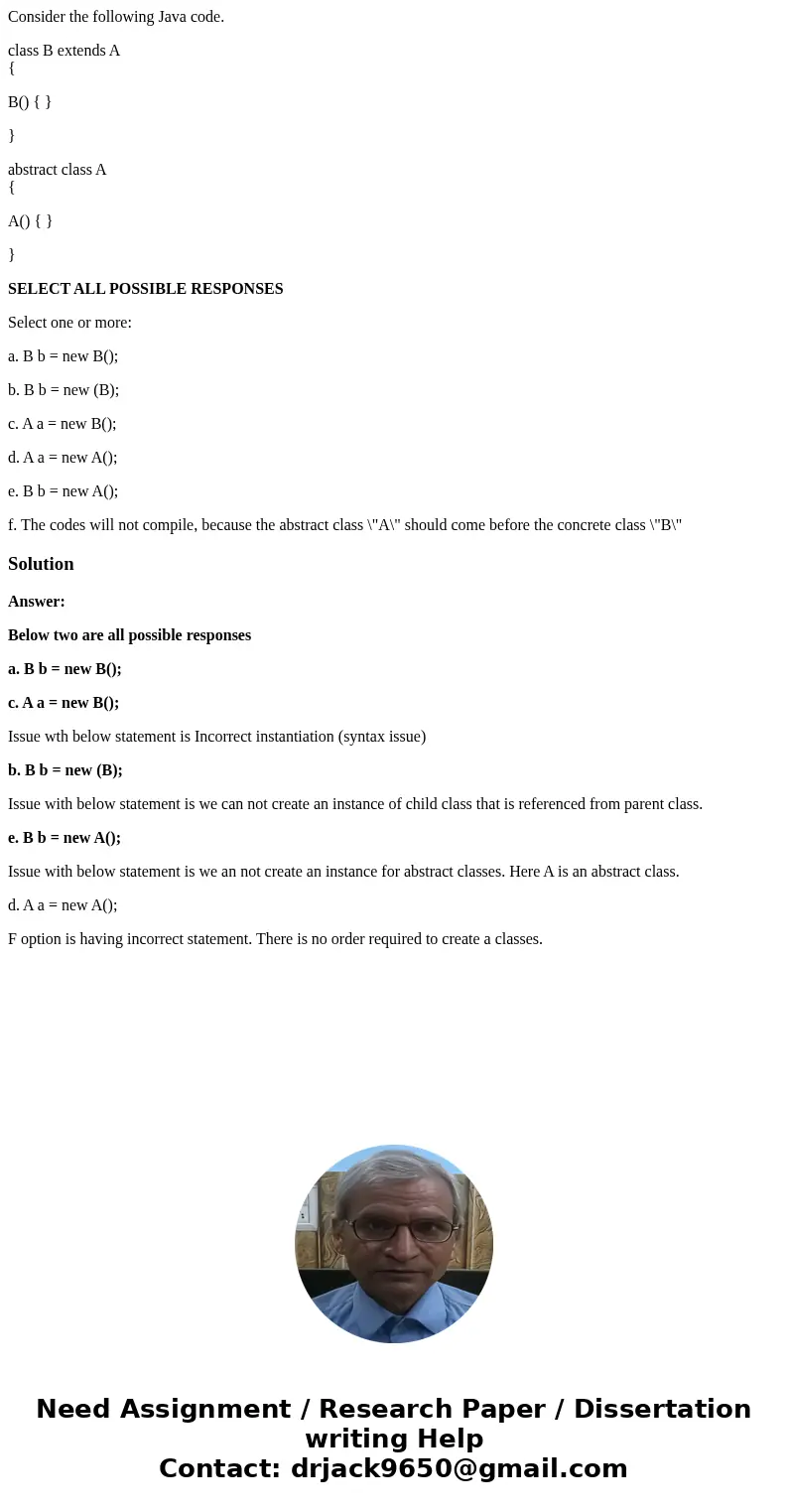Consider the following Java code class B extends A B abs
Consider the following Java code.
class B extends A
{
B() { }
}
abstract class A
{
A() { }
}
SELECT ALL POSSIBLE RESPONSES
Select one or more:
a. B b = new B();
b. B b = new (B);
c. A a = new B();
d. A a = new A();
e. B b = new A();
f. The codes will not compile, because the abstract class \"A\" should come before the concrete class \"B\"
Solution
Answer:
Below two are all possible responses
a. B b = new B();
c. A a = new B();
Issue wth below statement is Incorrect instantiation (syntax issue)
b. B b = new (B);
Issue with below statement is we can not create an instance of child class that is referenced from parent class.
e. B b = new A();
Issue with below statement is we an not create an instance for abstract classes. Here A is an abstract class.
d. A a = new A();
F option is having incorrect statement. There is no order required to create a classes.

 Homework Sourse
Homework Sourse